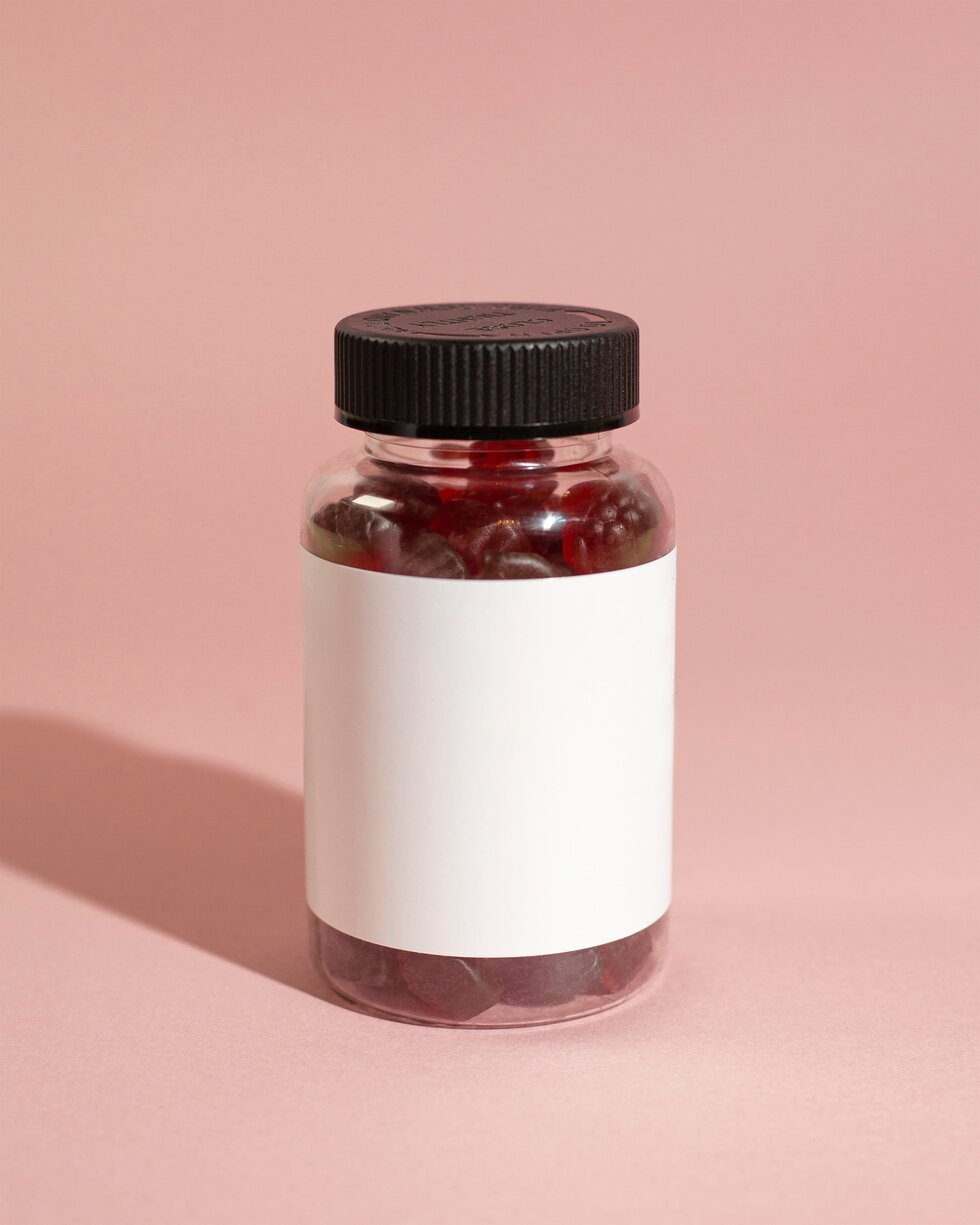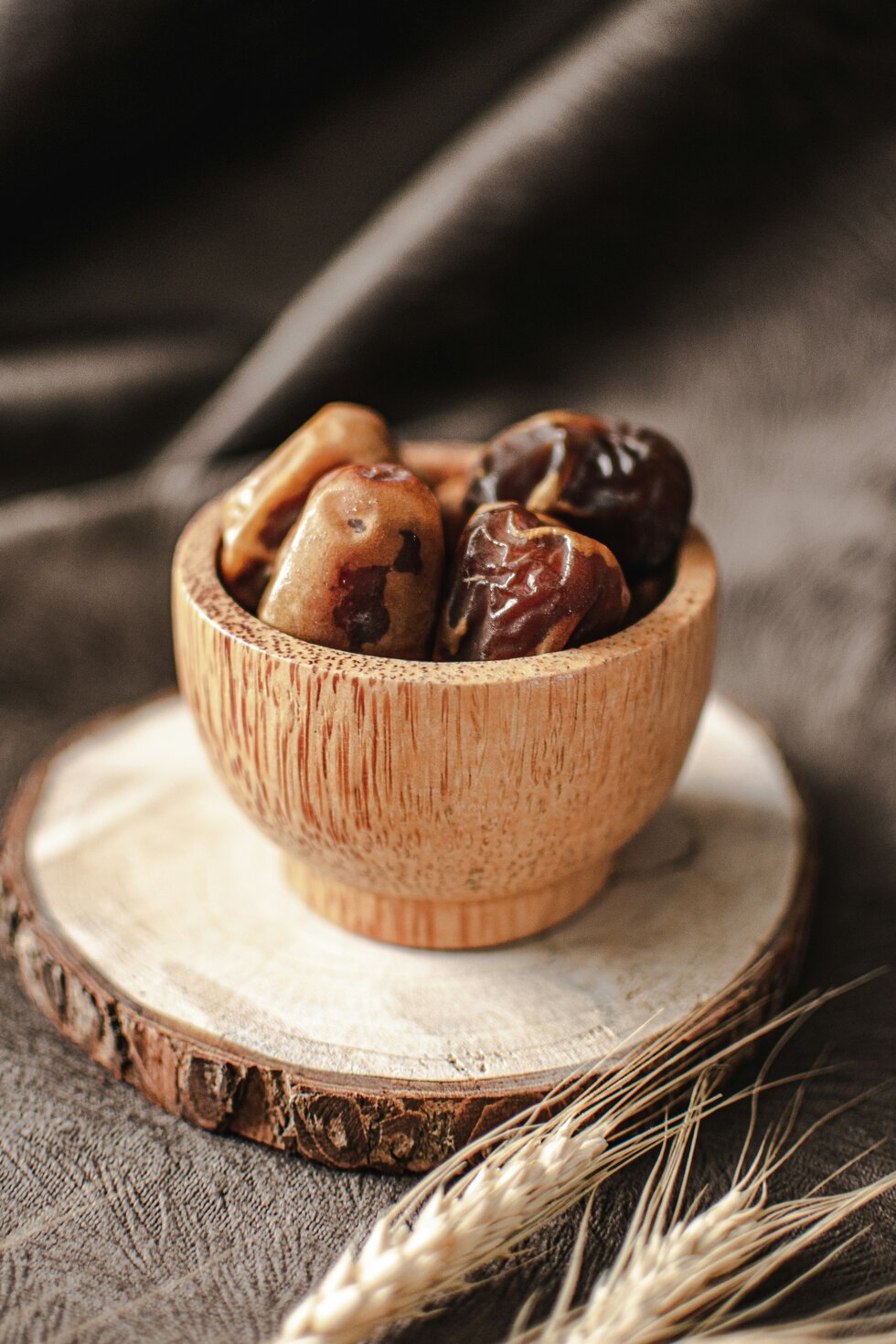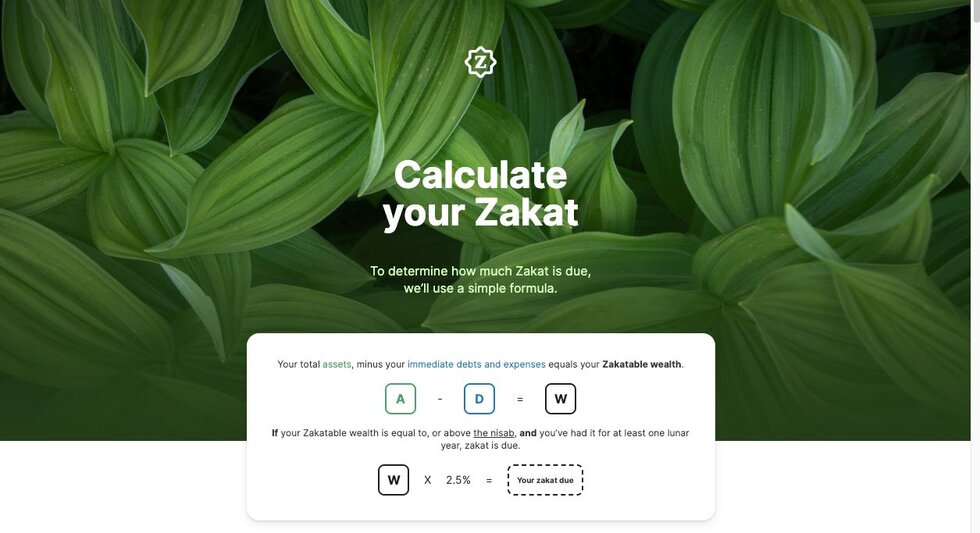Home
>
Vitamins and fasting
November 17, 2024
Vitamins and fasting: The impact, benefits, and Sunnah guidance
By Yusuf Jaffar
•
3 min read

Fasting is a deeply spiritual practice that nurtures both the body and soul, but it also raises important questions about health and nutrition. One common concern is whether taking vitamins during fasting is permissible and beneficial. In this guide, we’ll explore three key areas:
The Impact of vitamins and fasting – Discover whether taking vitamins or supplements could break your fast and how they interact with fasting rules.
Can Vitamins help with fasting? – Learn how vitamins might support your body during fasting, aiding energy, focus, and overall well-being.
Natural Vitamins as recommended by the sunnah – Uncover timeless guidance from the Sunnah on natural vitamins and foods that can nourish your body in alignment with Islamic teachings.
The impact of vitamins and fasting
The impact of vitamins and fasting
The question of whether taking vitamins during fasting breaks the fast is a nuanced topic in Islamic jurisprudence. While this article provides a general understanding, it is essential to note that reading this alone is not enough for making personal decisions. Each case varies, and consulting both medical professionals and Islamic scholars is strongly recommended. The World Islamic Fiqh Council and other scholarly bodies have debated the topic extensively, particularly regarding critical illnesses and necessary medications. Below is a comprehensive summary based on scholarly opinions and the provided links.
Oral vitamins
Consuming vitamins orally during fasting hours (from dawn to sunset) invalidates the fast. Anything ingested through the mouth that reaches the stomach is akin to eating or drinking. Allah says in the Qur'an:
"And eat and drink until the white thread (light) of dawn appears to you distinct from the black thread (darkness of night)" (Al-Baqarah 2:187).
If vitamins are essential, they should be taken during suhoor (pre-dawn meal) or iftar (post-sunset meal).
Vitamin injections
Injections of vitamins or other substances for medical purposes do not break the fast, provided they are not a substitute for food or drink. Scholars such as Shaykh Ibn ‘Uthaymeen have clarified that injections for treatment purposes are permissible. However, nutritional injections or drips designed to nourish the body, providing sustenance similar to food and drink, invalidate the fast. This distinction is supported by sources such as IslamWeb and IslamQA.
Nutritional supplements
Nutritional supplements provided through drips or oral intake explicitly invalidate the fast, as they are treated as equivalent to consuming food or drink. The ruling is clear: these must be avoided during fasting hours unless medically necessary.
Flexibility for illness
The Quran provides flexibility for those who are ill or require medications that cannot be delayed until non-fasting hours. Allah says:
"And upon those who are ill or traveling, the same number of days are to be made up" (Al-Baqarah 2:184).
If vitamins or medications are critical for health, individuals may break their fast temporarily and make up the missed days later.
Conclusion
Oral vitamins and nutritional supplements invalidate the fast and should be taken outside fasting hours.
Non-nutritive injections for medical purposes do not break the fast.
Nutritional injections or drips invalidate the fast and should be avoided.
Critical health conditions allow for temporary exemption from fasting.
Oral vitamins and nutritional supplements invalidate the fast and should be taken outside fasting hours.
Non-nutritive injections for medical purposes do not break the fast.
Nutritional injections or drips invalidate the fast and should be avoided.
Critical health conditions allow for temporary exemption from fasting.
For further insights and scholarly references, consult these detailed articles:
This overview provides general guidance, but consulting scholars and doctors for individual cases is highly recommended.
Find Ramadan fundraisers below.
Can vitamins help with fasting

Fasting during Ramadan is generally healthy and offers numerous physical and spiritual benefits. However, every individual's health needs vary, and this guide should be applied on a case-by-case basis. If you’re fasting, ensuring your body receives the nutrients it needs can help maintain energy levels, support your overall health, and enhance your fasting experience. Incorporating certain vitamins and supplements into your suhoor (pre-dawn meal) or iftar (post-sunset meal) can be beneficial. Below are recommendations to support health during Ramadan fasting.
Recommended vitamins and their benefits
Vitamin B-Complex
Boosts energy levels and supports normal metabolism, reducing fatigue during fasting hours.
Found in foods like eggs, lentils, and nuts, or taken as supplements.
Vitamin C
Strengthens the immune system and combats fatigue caused by sleep deprivation or reduced food intake.
Consume through citrus fruits or supplements at suhoor or iftar.
Vitamin D
Supports bone health, immunity, and mood regulation, which may be impacted by changes in routine during Ramadan.
Especially important for those with limited sun exposure.
Vitamin E
Acts as an antioxidant to protect cells and supports overall health during fasting.
Vitamin K2
Promotes bone strength, cardiovascular health, and gut health.
Omega-3 Fatty Acids
Helps regulate appetite, reduce cravings, and support brain and heart health.
Found in fish oil supplements or fatty fish like salmon.
Protein Supplements
Prevents muscle loss due to reduced protein intake during fasting.
Protein shakes or bars are convenient options for suhoor or iftar.
Iron
Supports oxygen transport in the blood and prevents fatigue, particularly important for individuals prone to anemia.
Magnesium
Reduces tiredness and supports muscle function, especially after long fasting hours.
Vitamin B-Complex
Boosts energy levels and supports normal metabolism, reducing fatigue during fasting hours.
Found in foods like eggs, lentils, and nuts, or taken as supplements.
Vitamin C
Strengthens the immune system and combats fatigue caused by sleep deprivation or reduced food intake.
Consume through citrus fruits or supplements at suhoor or iftar.
Vitamin D
Supports bone health, immunity, and mood regulation, which may be impacted by changes in routine during Ramadan.
Especially important for those with limited sun exposure.
Vitamin E
Acts as an antioxidant to protect cells and supports overall health during fasting.
Vitamin K2
Promotes bone strength, cardiovascular health, and gut health.
Omega-3 Fatty Acids
Helps regulate appetite, reduce cravings, and support brain and heart health.
Found in fish oil supplements or fatty fish like salmon.
Protein Supplements
Prevents muscle loss due to reduced protein intake during fasting.
Protein shakes or bars are convenient options for suhoor or iftar.
Iron
Supports oxygen transport in the blood and prevents fatigue, particularly important for individuals prone to anemia.
Magnesium
Reduces tiredness and supports muscle function, especially after long fasting hours.
Timing of vitamin intake
Fat-soluble vitamins (A, D, E, K): Take with meals at suhoor or iftar, as they require dietary fat for absorption.
Water-soluble vitamins (B-complex, C): Take with water during suhoor or iftar.
Protein supplements: Best consumed at suhoor to sustain energy throughout the day.
Fat-soluble vitamins (A, D, E, K): Take with meals at suhoor or iftar, as they require dietary fat for absorption.
Water-soluble vitamins (B-complex, C): Take with water during suhoor or iftar.
Protein supplements: Best consumed at suhoor to sustain energy throughout the day.
Additional tips
Stay hydrated by drinking plenty of water during non-fasting hours to aid vitamin absorption and maintain overall health.
Consult a healthcare professional before starting any new supplement regimen to ensure it aligns with your specific health needs.

Natural vitamins as recommended by the Sunnah
The Sunnah of the Prophet Muhammad (PBUH) emphasizes the use of natural, nutrient-rich foods that not only nourish the body but also strengthen the soul. These foods, often highlighted in Islamic teachings, provide essential vitamins and minerals beneficial during fasting in Ramadan. The life of the Prophet (PBUH) serves as a timeless example for mankind, and incorporating these foods into our diet can bring both physical and spiritual benefits. Below are some key Sunnah-recommended foods and their nutritional benefits.
Sunnah foods and their nutritional benefits
Dates
The Prophet (PBUH) loved dates and recommended breaking the fast with them:
“If anyone is fasting, let him break his fast with dates; in case he does not have them, then with water.” (Abu Dawood)
Nutritional value: Rich in vitamins A, B1, B2, B3, B5, B6, B9, C, E, and minerals like potassium, magnesium, and iron.
Benefits: Provide quick energy, prevent fatigue, improve digestion, and support muscle function.
Figs
Mentioned in the Qur'an (Surah At-Tin), figs hold a significant place in Islamic teachings.
Nutritional value: Contain vitamins A, B1, B2, C, and K along with calcium and phosphorus.
Benefits: Improve digestion, strengthen bones, support haemoglobin production, and act as a natural laxative.
Honey
Praised in the Qur'an for its healing properties:
“There emerges from their bellies a drink [honey], varying in colors, in which there is healing for people.” (Surah An-Nahl 16:69)
Nutritional value: Contains antioxidants and B-complex vitamins.
Benefits: Strengthens immunity, regulates blood sugar levels, aids digestion, and provides sustained energy.
Olives
The Prophet (PBUH) said:
“Eat olive oil and anoint yourselves with it because it is from a blessed tree.” (Tirmidhi)
Nutritional value: Rich in healthy fats and vitamin E.
Benefits: Supports heart health, boosts iron levels, and improves cognitive function.
Barley
Barley was a staple food of the Prophet (PBUH), often consumed as soup or porridge.
Nutritional value: High in fiber and contains B-complex vitamins and vitamin E.
Benefits: Improves digestion, lowers cholesterol, and provides steady energy release during fasting.
Cucumbers
The Prophet (PBUH) was reported to eat cucumbers with dates.
Nutritional value: Composed of 95% water, contain vitamin K and antioxidants.
Benefits: Hydrate the body during long fasts and provide a cooling effect.
Pumpkins
The Prophet (PBUH) was known to enjoy pumpkins as part of his meals.
Nutritional value: Rich in vitamins A and C along with antioxidants.
Benefits: Supports heart health, improves sleep quality after fasting, and reduces inflammation.
Black Seed (Habbatus Sauda)
The Prophet (PBUH) said:
“Use the black seed for indeed it is a cure for every disease except death.” (Bukhari)
Nutritional value: Contains essential fatty acids and vitamin E.
Benefits: Boosts immunity, reduces inflammation, and supports overall health.
How to incorporate sunnah foods during Ramadan
Breaking the fast: Begin with dates and water or milk to restore energy.
Suhoor (pre-dawn meal): Include honey or figs for sustained energy throughout the day.
Iftar (post-sunset meal): Use olive oil or barley-based dishes for their nutrient-dense properties.
Featured fundraisers
Discover 1.5K more
Join our newsletter
Join our community of 700k subscribers
Explore more

